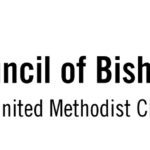We follow Jesus who offers us hope in eternal life.
Jesus said to her, “Everyone who drinks of this water will be thirsty again, but those who drink of the water that I will give them will never be thirsty. The water that I will give will become in them a spring of water gushing up to eternal life.” The woman said to him, “Sir, give me this water, so that I may never be thirsty or have to keep coming here to draw water.” – John 4:13–15
High in the mountains near Kyoto, Japan, sits Kiyomizu, a Buddhist temple founded in the first century. It is a magnificent structure featuring a river that flows beneath the temple, emerging in a waterfall. Filling ladles with water, visitors eagerly sip the cold, clear, pure water at Kiyomizu, which means “pure water.” It is no wonder that pilgrims to Kiyomizu drink eagerly and thirstily of the pure water.
In John’s gospel, Jesus encounters a woman at a well who has come in a daily ritual to draw water from the well. Her goal is to quench the day’s thirst. In his encounter with the woman, Jesus uses the water that satisfies human thirst as an object lesson to help her understand a profound message. Jesus reminds the woman at the well that although drinking water from that well will satisfy her immediate need for water, eventually she will thirst again.
Jesus offers the woman a better alternative. More than just satisfying a physical craving for water, Jesus tells of a spiritual event in the life of the woman at the well. Following Jesus would lead to an awakening of the soul that leads to a transformation of one’s life.
Unfortunately, the woman at the well has misunderstood Jesus’ message. She assumes that the gift that Jesus offers is related to the quenching of her physical need for water. She does not see that Jesus is speaking of something deeper, a spiritual thirst that faith in Jesus can assuage. Jesus offers her the gift of eternal life, which is a gift that comes when a person knows Jesus and accepts his invitation to become a disciple following Jesus.
Lent is a season of looking beyond ourselves. We might deny ourselves by giving up something for the Lenten season. Rather than indulging in feasting, we might choose to fast. In place of actions that demean, we might affirm them instead. Putting aside the negatives in our life constitutes self-denial. But as we look beyond ourselves, there is so much more that we can and should be doing as followers of Jesus Christ.
Water from a well will quench our thirst for a moment. But we are encouraged to look inwardly at ways we can become better disciples of Jesus Christ, caring for others, reaching out to those in need, doing good to show the depth of our faithfulness and transforming the world.
PRAYER: God of grace and eternity, we come in prayer because we seek your presence in our lives. When we have neglected to show our love for you and for others, remind us of the pure, cleansing, eternal love in your son, Jesus Christ. Forgive us, and work within us that we might be better Christ-followers. We pray in the name and spirit of Jesus. Amen.
Bishop Robert T. Hoshibata, Desert Southwest Conference
Find other Lenten Letters at http://westernjurisdictionumc.org/category/lenten-letters-2017/





